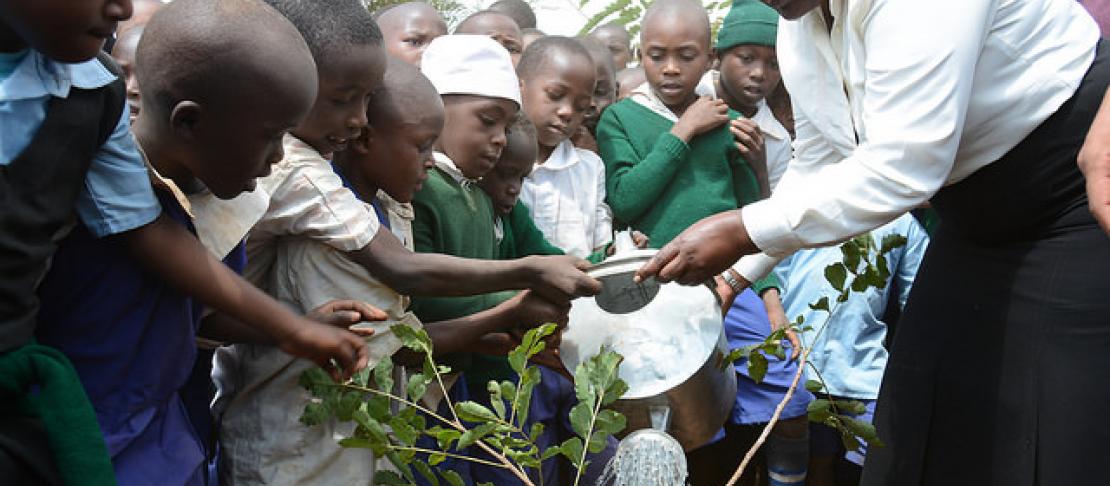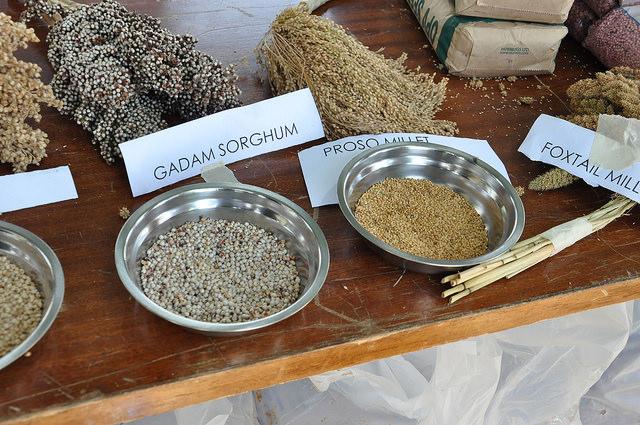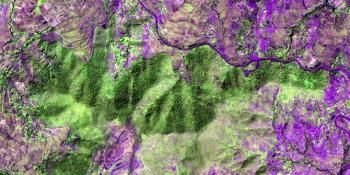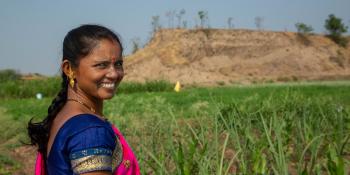Learning from communities: Natural resource management and climate change adaptation best practices

17 climate practitioners, also known as 'routeros', from Kenya, Ethiopia, Lesotho and Rwanda undertook a six day journey across Kenya’s counties to learn from ongoing community and local experiences of climate change adaptation and natural resource management.
Climate change impacts are likely to hit Africa, especially the vulnerable population, hard. In arid and semi-arid regions in East and Southern Africa, it is projected to produce a rise in crop failures, stress on livestock and inland fisheries, pest and disease outbreaks and the degradation of land and water resources. The climatic context for agriculture is changing rapidly and these changes are more than ‘future music’, they are real, and they are happening now,” said Dr. Steve Twomlow, International Fund for Agricultural Development (IFAD) regional Climate and Environmental Specialist.
Dr. Twomlow made these remarks as he officiated the opening ceremony of a learning route which took place in several districts in Kenya between the 7th and the 13th of July 2014. A learning route is a continuous process of in-the-field training that seeks to broaden and diversify the markets and capacities of rural practices, cultures and technical services, placing special value on the best experiences and knowledge of institutions, associations, communities and rural families.
The event was organized by the International Fund for Agricultural Development (IFAD), CARE (relief agency) in Kenya and the CGIAR Research Program on Climate Change Agriculture & Food Security, in partnership with Procasur Africa. It brought together 17 participants also known as ‘routeros’ from various IFAD supported projects, implementing partners and civil society organizations in Ethiopia, Rwanda, Lesotho and the host, Kenya.
We aim to scale up through peer to peer learning the Kenyan best multi stakeholders’ strategies, tools and practices to fight environmental degradation and to adapt to climate change”, explained, Valentina Sauve, Procasur learning route coordinator.
Routeros, from Kenya, Ethiopia, Lesotho and Rwanda, were to undertake a six day journey to Kenya’s counties hosting a number of cases to learn from ongoing community and local level experiences on climate change adaptation and natural resource management (NRM).
Can the local capacity be enhanced for sustainable management of natural resources?
The upper Tana NRM project covering Embu, Tharaka Nithi and Meru counties was the first stop on the learning route. There are four major projects under the case which included school greening program, Nthawa community irrigation project, water resource users association (WRUA) and participatory forest management under community forest association.
The main lessons for the routeros included: that there is a nexus between poverty and environmental management; livelihood improvement for poor rural communities is important for effective natural resources management; communities are too poor to invest in environmental management and also need to accrue tangible benefits for natural resources management to be sustainable; small investments in livelihood improvement have a huge bearing on NRM and finally communities can engage in NRM where they see clear benefits accruing to them.
Communities must be part and parcel of NRM for it to succeed. Partnership is equally important for people working together for sustainability of NRM” said Paul Njuguna, the Land and Environmental Coordinator Specialist in the upper Tana project.
Building resilience and improving food security of rural dry land communities; lessons learned from CCAFS Climate Change adaptation project in Makueni County

Sorghum is a good and nutritious food just like maize, and it is better able to thrive and yield under water stress conditions compared to the maize crop. Photo: V.ATAKOS
At the Ministry of agriculture - Makueni sub-county office, the routeros interacted with policy makers, farmers, scientists and development partners, testing climate change adaptation technologies and practices at the CCAFS learning site in Wote, Makueni.
The panel presentation and discussions focused on: testing the design and communication of downscaled, probabilistic seasonal forecasts; and evaluating their impact on farmers’ management and livelihood outcomes at Wote, eastern Kenya by the Kenya Meteorological department (KMD) and International Crops Research Institute for the Semi-Arid Tropics (ICRISAT) as the lead institution; the approach and use of community organizations for flow of information and enhanced sustainability with the partnership of the private sector universal traders Sacco (UTS) and finally results of dry land cereal - legume diversification trials and policy implication in Wote, Makueni, led by Ministry of Agriculture, ICRISAT and Kenya Agricultural Research Institute (KARI) Katumani.
The panel also comprised of two farmers (female and male) who were involved in the cereal – legume trials. They shared their experiences and challenges based on the trials.
Read more on the trials: Intercrop innovations may help build resilience in semi–arid areas
A key lesson from the CCAFS sponsored initiative was the importance of giving timely climate information to farming communities for better farm decisions.
Farmers with access to and improved understanding of climate information services managed their farms differently leading to increased productivity and higher returns on investments,” said, Mr. Charles Ndung’u, the Sub-County District Agricultural officer during discussions with the routeros.
Read more on climate services: How can we help farmers better understand climate information?
Having visited a total of six cases and interacting with local communities, the participants developed innovation action plans. These reinforced practical application of the learning acquired to their own reality and the activities of their associations or organizations. In appreciation for facilitating the learning process each case received USD 500 from Procasur to further support their activities.
Read about a similar event held in 2013: East African policy-makers learn from innovative climate change adaptation experiences
View all photos from the learning route in 2014
Phillip Kimeli is a Research Assistant with CCAFS in East Africa.
For more information about CCAFS work in East Africa visit our webpage and follow @cgiarclimate_EA on twitter.



